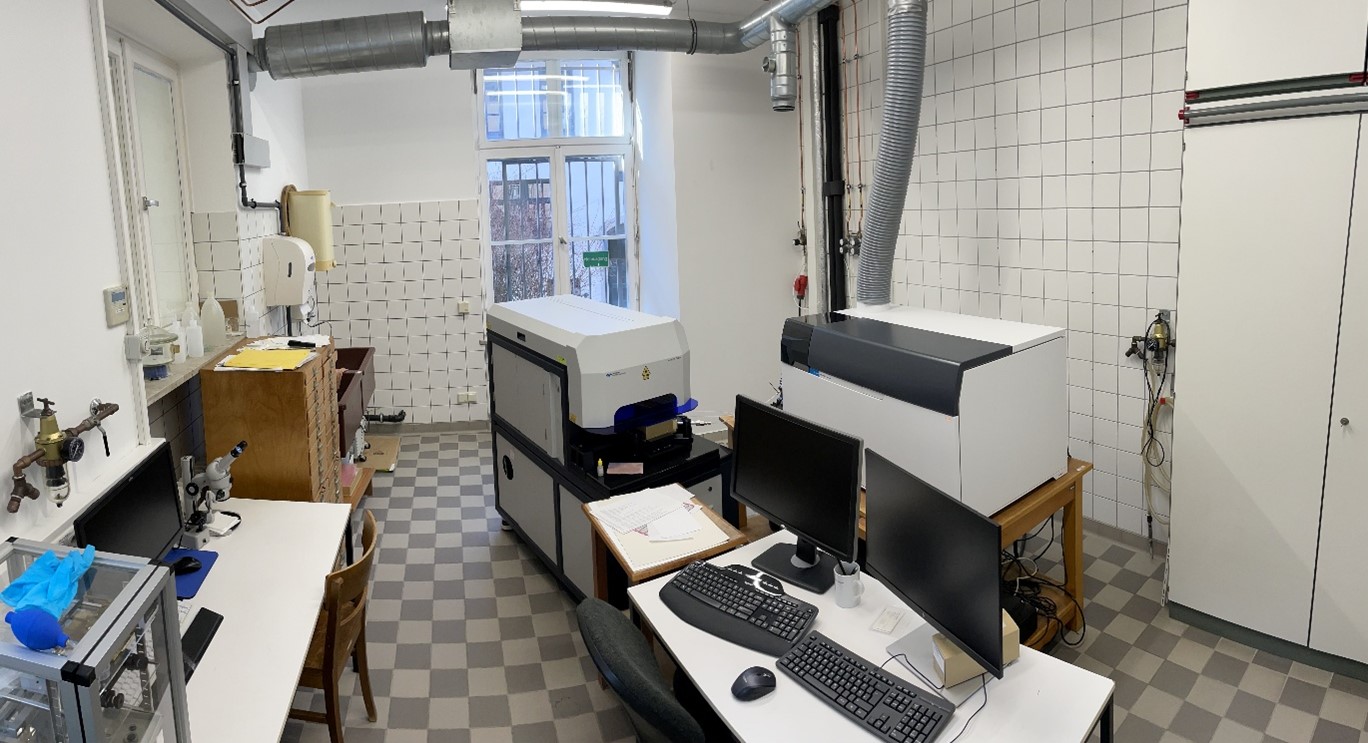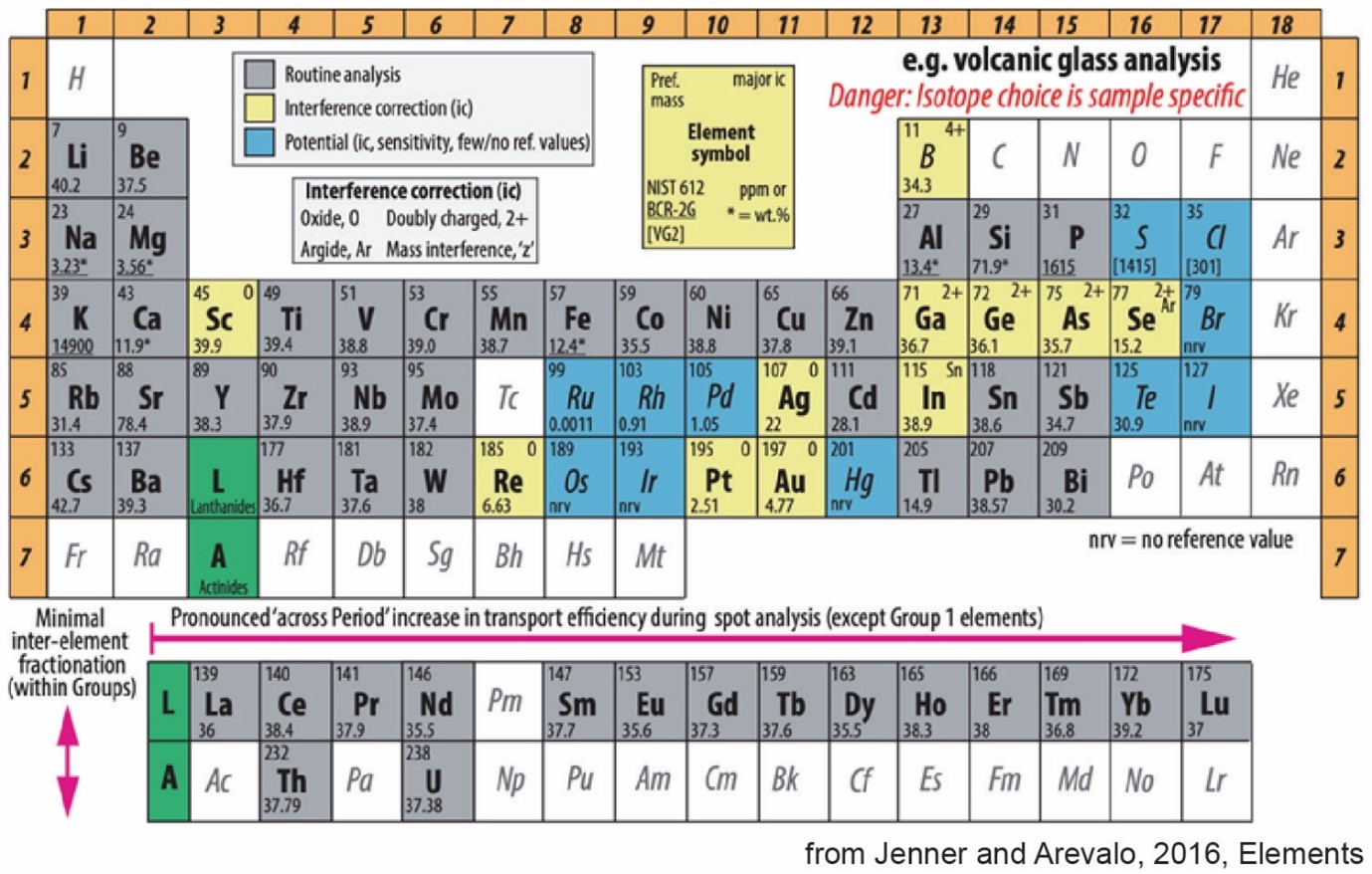GZN LA-ICP-MS/MS Facility
The GZN Laser Ablation Tandem Quadrupole ICP-MS (LA-ICP-MS/MS) Facility
~ Mente et Ardore ~
Our laboratory is based around a 193 nm Excimer laser ablation unit (Teledyne Analyte Excite) coupled to a new, and state-of-the-art, 8900 Agilent Triple-Quadrupole ICP-MS (LA-ICP-MS/MS). The instrument is used for a broad range of topics including, trace element and isotope analysis, geochronology, and element imaging within the fields of geosciences, materials sciences, metallomics, biomedicine, archeology, and biology.

Analytical Capabilities and Applications of LA-ICP-MS
Laser ablation ICP-MS is an easy, flexible, and powerful technique: analyses are rapid (<1 min), have low (sub-ppm) detection limits, have laser spot sizes as small as 1 micron to as large as 110 microns wide, and provides results with uncertainties generally less than 5%.
Because of the high rate of data acquisition and high spatial resolution, LA-ICP-MS can also be used to make images of elemental concentration of sample surfaces. Some examples of mapping projects are elemental zoning in minerals, identification of the location of metals in biological tissues, or chemical growth zonation of corals.
In simple terms, the laser ablation method uses an ultraviolet laser to ablate, or “drill”, at the sample surface. The particles from ablation are carried by a flow of He gas to the ICP-MS/MS, whereupon the sample particles are atomized, the atoms are then ionized, and the ions are carried through the instrument and measured by the detector. Because most solids can be “drilled” into by an ultraviolet laser, a wide array of sample types can be analyzed: minerals, ceramics, tissue samples, shells, bones, plastics, hydrocarbons, and more.

We offer a wide range of different types of analyses:
- Trace element analyses of elements often measured by LA-ICP-MS (in grey in above figure) in a wide range of geologically, archaeologically, and biologically relevant materials: minerals, glasses, gems, ceramic, bones, teeth, otoliths, tissue, and more.
- Trace element analyses of platinum-group elements, poor metals, and other economically relevant elements in sulfide minerals (blue and yellow elements in above figure).
- Sulfur isotopes in pyrite, sphalerite, chalcopyrite, arsenopyrite, and pyrrhotite (~1 per mil precision 2SD).
- Imaging of elemental concentrations on sample surfaces
- U-Pb geochronology in zircon and apatite (in development).
- We have the ability to analyze more isotope systems and elements than we have currently developed. If you are interested in the analysis of and element or a material not listed here, please contact us.
For more information on sample preparation and documentation please download the pdf here.
We offer our services to all interested scientists and industries. We will work with users of all experience levels to ensure the best analytical results possible. All users are invited to be present during the analyses, however users can also perform their analyses remotely. Rates on request. Our lab is open Mon-Fri from 8am to 5pm, but is closed on holidays and weekends.
For general questions and scheduling, please contact Prof. Dr. Barbara Kleine-Marshall.
For questions related to analytical methods, sample preparation, and your visit, please contact our lab manager Dr. Edward W. Marshall.
Friedrich-Alexander-Universität
GeoZentrum Nordbayern
Schlossgarten 5
91054 Erlangen
Germany
Room: 0.009 (Ground floor)
